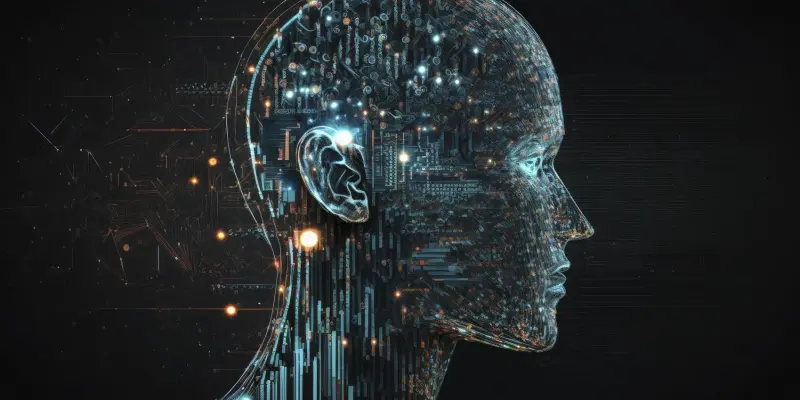As artificial intelligence (AI) continues to transform the workforce, a growing sentiment among Generation Z suggests that their college degrees are rapidly becoming obsolete. Recent findings indicate that nearly half of Gen Z job seekers believe AI has rendered their formal education irrelevant. This view is shared, albeit to a lesser extent, by millennials, Gen X, and baby boomers. The omnipresent nature of AI across various industries has led to significant changes in job roles, salary trends, and organizational structures. For many young professionals, the substantial investment in higher education seems incongruent with the evolving demands of an AI-driven job market. This perception is prompting a critical examination of traditional education pathways and fueling a burgeoning upskilling movement aimed at equipping employees with the necessary tools to adapt to the rapidly changing landscape.
The Impact of AI on Gen Z’s Career Perceptions
The perception of AI’s influence is markedly pronounced among Generation Z, with a substantial portion feeling that their college degrees no longer hold the value they once did. This sentiment is shared by about one-third of millennials and gradually decreases with older generations. The evolving job market, heavily influenced by AI, has not only altered the nature of roles but also influenced salary trends and reshaped organizational structures. This shift has left many young professionals questioning the return on investment in their traditional educational pathways. With job postings increasingly de-emphasizing the necessity of a college degree, a growing number of Gen Z graduates view their academic achievements as potentially wasteful endeavors in the context of current employment trends.
Indeed’s Senior Talent Strategy Advisor, Linsey Fagan, underscores the necessity of comprehending AI’s implications for every employee within an organization. She stresses that leadership must support their teams by evaluating individual and collective needs and fostering development opportunities. This is especially critical for organizations aiming to harness AI’s potential, as employees must be motivated and capable of learning and applying new AI tools effectively. Without a concerted effort to upskill the workforce, organizations risk falling behind as AI becomes increasingly integrated into daily operations and strategic initiatives.
Rising Demand for Upskilling Programs
In response to these shifting dynamics, many Chief Information Officers (CIOs) are implementing robust upskilling programs designed to help employees acclimate to new AI technologies. The introduction of these programs signifies a committed investment in human capital, ensuring that employees remain relevant and competent in their respective fields. Simultaneously, technology vendors have stepped up by developing and offering specialized training programs tailored to facilitate AI adoption across enterprises. These initiatives have been met with significant enthusiasm as professionals recognize the necessity of continuous learning to stay competitive in an AI-dominated job market. Online learning platforms, such as O’Reilly, have reported a dramatic surge in demand for AI-specific training programs, with the number of professionals seeking to understand AI principles increasing fourfold over the past year. This trend highlights a broader recognition of the importance of equipping oneself with relevant skills to navigate the complexities introduced by AI. The focus on upskilling is not merely a reactive measure but a proactive approach designed to empower employees to leverage AI to optimize performance and drive innovation within their organizations. By investing in comprehensive training programs, companies can ensure their workforce is well-prepared to tackle the challenges and opportunities presented by AI.
The Role of Continuous Learning
The paradigm shift towards continuous learning is becoming increasingly crucial as AI continues to infiltrate various aspects of work. Continuous upskilling and reskilling are now imperative for employees who wish to stay relevant in a rapidly changing job market. Organizations are responding to this need by providing not just theoretical knowledge but also practical, hands-on experiences with new AI tools. This dual approach ensures that employees can seamlessly integrate learned concepts into their day-to-day work, thus maximizing the potential benefits of AI technologies. Moreover, by fostering a culture of continuous improvement and skill development, organizations can maintain a competitive edge and drive sustained growth. The overarching consensus among industry leaders and experts is that investment in workforce development is paramount. Providing training, fostering engagement with new AI tools, and encouraging a mindset of lifelong learning are essential steps towards unlocking the full potential of AI in the workplace. As AI continues to disrupt traditional job roles, the emphasis on adapting through upskilling will likely become a standard practice rather than an exception. Employees who embrace this shift and actively seek out learning opportunities will be better positioned to thrive in an AI-enhanced work environment, driving both personal and organizational success.
Moving Forward with AI and Upskilling
Generation Z feels particularly impacted by the influence of AI, with many believing their college degrees are losing value. This sentiment is shared by roughly one-third of millennials, and it diminishes with older generations. As AI transforms the job market, it changes not only job roles but also salary trends and corporate structures. Consequently, many young professionals are questioning whether their investment in a traditional education is worth it. With more job postings moving away from requiring a college degree, a growing number of Gen Z graduates feel their academic achievements may be irrelevant in today’s employment landscape.
Indeed’s Senior Talent Strategy Advisor, Linsey Fagan, emphasizes the need to understand AI’s effects on every employee within an organization. She highlights that leadership must support their teams by evaluating both individual and collective needs, as well as by providing development opportunities. This is crucial for organizations aiming to leverage AI effectively because employees must be skilled and motivated to learn and use new AI tools. Without a dedicated effort to upskill the workforce, companies may lag as AI becomes more integrated into daily operations and strategic plans.

